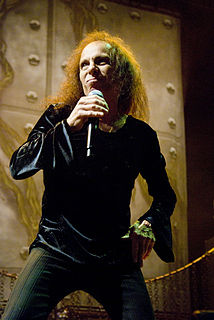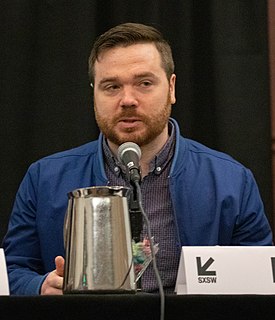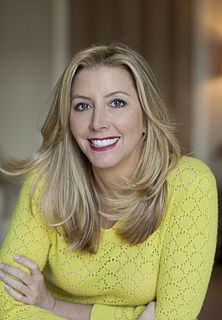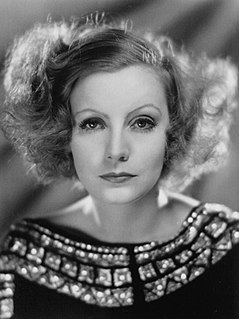A Quote by Joaquin Phoenix
If you walk into a room and one hundred people say, 'You are a lovely, beautiful person', who isn't going to be affected by that? But you have to tell yourself not to value that. You have to tell yourself - or at least I do - to not become accustomed to hearing applause in any way, because I think that's dangerous.
Related Quotes
'Black' is an adjective, in my book, and the way I use it, sometimes I'll say 'black people.' But if I'm talking about a person, I'm going to say 'a Negro,' because I was taught to say that, and I don't see any reason to change it. I don't think that gives pride or anything else. I don't think you get pride by calling yourself this or that.
"Don't believe me, don't believe yourself, and don't believe anybody else." Don't believe me, because what I say is only truth for me. Don't believe yourself, because most of the time what you tell yourself is only truth for you - especially when you tell yourself that you're not good enough, you're not intelligent enough, you're not beautiful enough - when you reject yourself before anybody else can reject you. And don't believe anybody else, because what they say is only truth for them.
I think the style Plimpton popularized - the dive-in, try-it-yourself journalism - is appealing and useful for a number of reasons, not the least of which is the value of an outsider's view into a little-known or misunderstood subculture. I tried to do the same thing with my book - tap into a pocket of American life that few people have any idea about, and tell the real, unvarnished truth about it in a way that was open-minded and authentic.
The difference between writing where you know where to draw the line and writing where you're being way too mean is whether you can tell that the writer is not talking to family or friends anymore. Generally, if you say something bad about somebody on stage, you need to say two bad things about yourself. A lot of times, I think I'm the worst person in the room.
I can tell any liberal why he or she thinks what they think. I can predict to them what their reaction to any event or person is going to be, because I know them, because I have taken the time because I'm curious to study it. I know what liberalism is. I know from where it springs and derives, and I know the vast majority of people who are liberals, what they are going to do, say, and think about.
I made a conscious decision not to tell anyone in my life. Now I tell people - don't tell anyone your idea until you have invested enough of yourself in it that you are not going to turn back. When a person has an idea at that conception moment it is the most vulnerable - one negative comment could knock you off course.
I think you reveal yourself by what you choose to photograph, but I prefer photographs that tell more about the subject. There's nothing much interesting to tell about me; what's interesting is the person I'm photographing, and that's what I try to show. [...] I think each photographer has a point of view and a way of looking at the world... that has to do with your subject matter and how you choose to present it. What's interesting is letting people tell you about themselves in the picture.
I think for most actors, because we sort of have to tell ourselves this, we always say, 'Oh, it doesn't mean anything to win an Oscar!' It certainly isn't a goal that you want to set yourself up for, because then you're just setting yourself up for disaster. Because how many people actually win an Oscar?




































